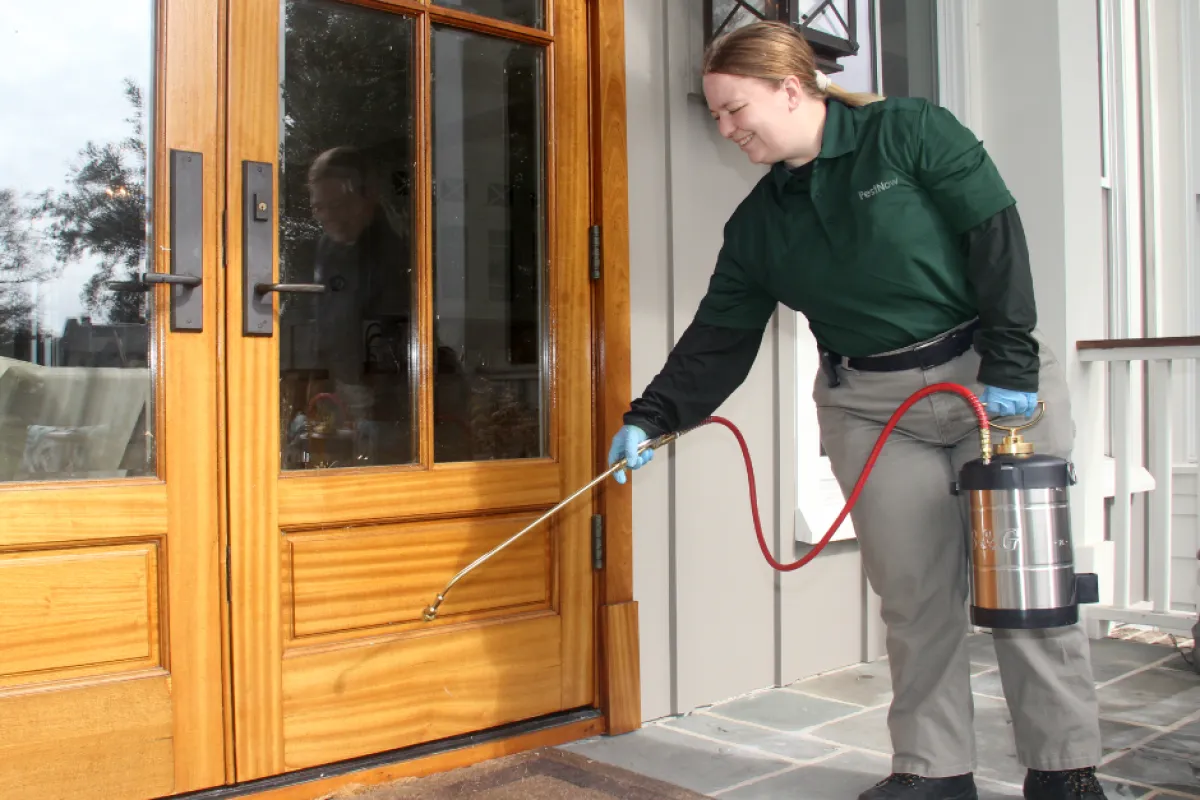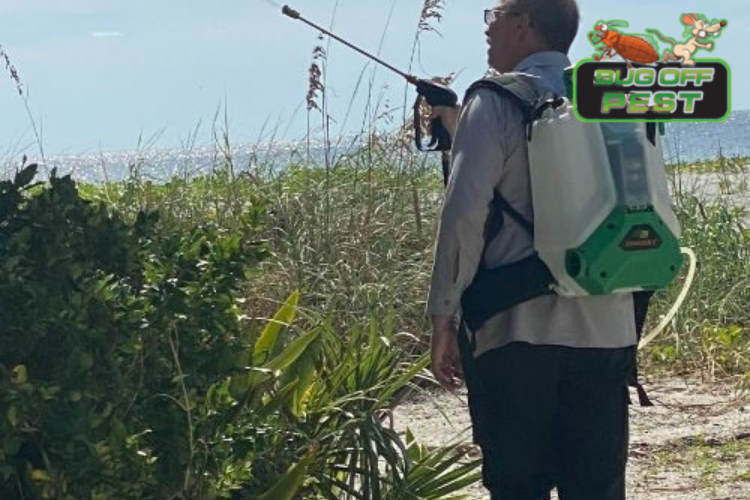Reliable Termite Treatment Port Charlotte to Defend Your Home
Explore Cutting-edge Solutions for Parasite Control and the very best Therapy Practices
The landscape of insect control is evolving, noted by the assimilation of advanced modern technologies and sustainable methods that guarantee reliable administration of undesirable insects. From smart traps furnished with IoT capabilities to the usage of drones for precise bug identification, these developments provide considerable advantages over traditional techniques. The adoption of environment-friendly biopesticides together with preventative strategies equips home owners to proactively resolve pest issues. As these practices gain grip, one must think about the implications and prospective performance of these techniques in a world significantly concentrated on sustainability. What does this mean for the future of parasite control?
Emerging Technologies in Bug Control
Over the last few years, the parasite control market has actually seen a considerable makeover driven by emerging technologies. Developments such as clever catches, IoT tools, and advanced data analytics have redefined standard bug monitoring practices. Smart traps geared up with sensors can spot parasite task in real-time, enabling timely treatment and decreasing the reliance on chemical therapies.
Moreover, the assimilation of Net of Points (IoT) technology makes it possible for insect control professionals to keep track of invasions remotely. By utilizing data from linked tools, companies can analyze patterns and predict insect behavior, resulting in more reliable and targeted remedies. This data-driven strategy not just enhances performance but additionally lessens waste and environmental impact.
In addition, using drones for surveying large locations provides an unique approach for determining pest hotspots. These airborne gadgets supply high-resolution imagery, promoting quicker evaluations and making it possible for even more tactical parasite control planning.
Additionally, advancements in biotechnology, such as genetically customized organisms (GMOs) and biopesticides, existing promising choices to conventional pesticides. These innovations intend to interrupt pest life cycles while preserving beneficial organisms, thereby promoting a more balanced ecosystem. Overall, these arising modern technologies are transforming parasite control, making it extra effective, exact, and sustainable.
Eco-Friendly Parasite Management Strategies
As the insect control sector welcomes innovative modern technologies, there is an increasing focus on green bug management strategies that prioritize environmental health. These approaches intend to minimize the use of dangerous chemicals while effectively handling pest populations.
One famous approach is using all-natural pesticides stemmed from plant removes, which are much less poisonous to non-target species and people. As an example, neem oil and diatomaceous planet are acquiring popularity for their performance against a variety of bugs without posturing significant risks to the environment.

Furthermore, environment adjustment plays a crucial role in parasite management. Cockroach exterminator Port Charlotte. By changing the environment-- such as eliminating standing water or preserving correct hygiene-- parasite habitats can be interfered with, minimizing problem chance
Finally, enlightening consumers concerning safety nets, such as sealing entry points and proper waste disposal, can further improve environmentally friendly pest administration initiatives. Jointly, these strategies represent a considerable change in the direction of sustainable techniques in pest control, making sure both effectiveness and environmental management.

Integrated Parasite Management Methods
Integrated Bug Administration (IPM) utilizes a complex method to pest control that combines various techniques to decrease bug populaces while minimizing ecological effect. This method emphasizes using organic, social, mechanical, and environment manipulation approaches, in addition to monitoring and evaluation methods to make informed choices.
Organic control involves the intro of all-natural predators or parasites that target particular pest types, consequently preserving ecological equilibrium. Social techniques include crop turning, intercropping, and correct hygiene to interrupt pest life cycles and reduce environment viability. Mechanical techniques, such as barriers and catches, physically avoid pests from infesting locations of worry.
Regular surveillance is essential in IPM, allowing practitioners to examine insect populations and examine the effectiveness of applied approaches. This data-driven approach enables timely treatments, minimizing the requirement for more radical measures. By integrating these strategies, IPM not just addresses present bug concerns but also cultivates long-term sustainability and strength against future infestations.
Ingenious Chemical Therapies
Chemical therapies in bug control have developed significantly, driven by improvements in innovation and a deeper understanding of pest actions. Modern solutions are designed to target specific parasites while decreasing the effect on non-target varieties and the atmosphere. Cockroach exterminator Port Charlotte. Technologies include the growth of biopesticides, have a peek at this site which use natural organisms or their by-products, giving a much safer choice to conventional chemical agents
Furthermore, the introduction of slow-release solutions boosts the efficacy of therapy by guaranteeing longer-lasting security. These sophisticated chemicals can be used in certain locations, minimizing the overall quantity needed and reducing possible direct exposure to pets and humans.
An additional significant improvement is the combination of accuracy application modern technology, which makes use of drones and robot systems to deliver therapies with high precision. This approach not only reduces chemical waste however also dramatically enhances the efficiency of parasite control procedures.
Furthermore, recognizing insect resistance mechanisms has led to the creation of novel energetic ingredients that can overcome these obstacles. As the industry remains to introduce, the focus continues to be on establishing more secure, much more reliable see this site chemical therapies that align with sustainable bug monitoring methods. This development supports the objective of preserving healthy and balanced environments while successfully regulating parasite populations.
Preventative Procedures for Property Owners
Effective bug control begins long prior to an infestation occurs, emphasizing the significance of preventative actions for homeowners. Cockroach exterminator Port Charlotte. Executing aggressive strategies can significantly minimize the risk of insects attacking your home
First, maintain proper cleanliness by routinely cleaning up kitchen areas, eating locations, and other areas where food is present. Store food in impermeable containers and immediately throw away waste. On a regular basis vacuuming and dusting can additionally get rid of possible pest habitats.
Following, check your home for any type of architectural vulnerabilities. Seal splits and holes in windows, doors, and walls to stop pests from going into. Pay very close attention to locations like attic rooms and cellars, where dampness can attract unwanted visitors.
Landscaping plays a vital duty in pest prevention. Maintain plant life cut and far from the house, and make sure appropriate drain to avoid standing water, which can draw in insects.

Lastly, think about normal professional parasite assessments. These specialists can determine prospective concerns before they intensify, offering customized services to secure your home. By taking on these preventative actions, home owners can produce an unwelcoming setting for bugs, making certain a pest-free and comfy space.
Final Thought
In recap, the integration of innovative technologies and green practices in insect control uses considerable Homepage developments in the market. Arising options such as smart traps, drones, and biopesticides exemplify a shift towards sustainable monitoring. The application of incorporated pest management techniques and preventative measures equips home owners to effectively mitigate parasite concerns while promoting ecological equilibrium. This all natural strategy not only boosts efficiency however additionally minimizes the ecological influence linked with traditional insect control methods.
The landscape of bug control is progressing, marked by the assimilation of cutting-edge technologies and lasting methods that assure efficient management of undesirable insects.In current years, the insect control industry has witnessed a considerable makeover driven by emerging modern technologies.Chemical treatments in parasite control have progressed considerably, driven by innovations in modern technology and a much deeper understanding of pest habits.In recap, the combination of innovative modern technologies and environment-friendly practices in pest control uses substantial developments in the sector. The application of incorporated pest administration strategies and preventative procedures encourages homeowners to successfully reduce parasite issues while promoting environmental balance.